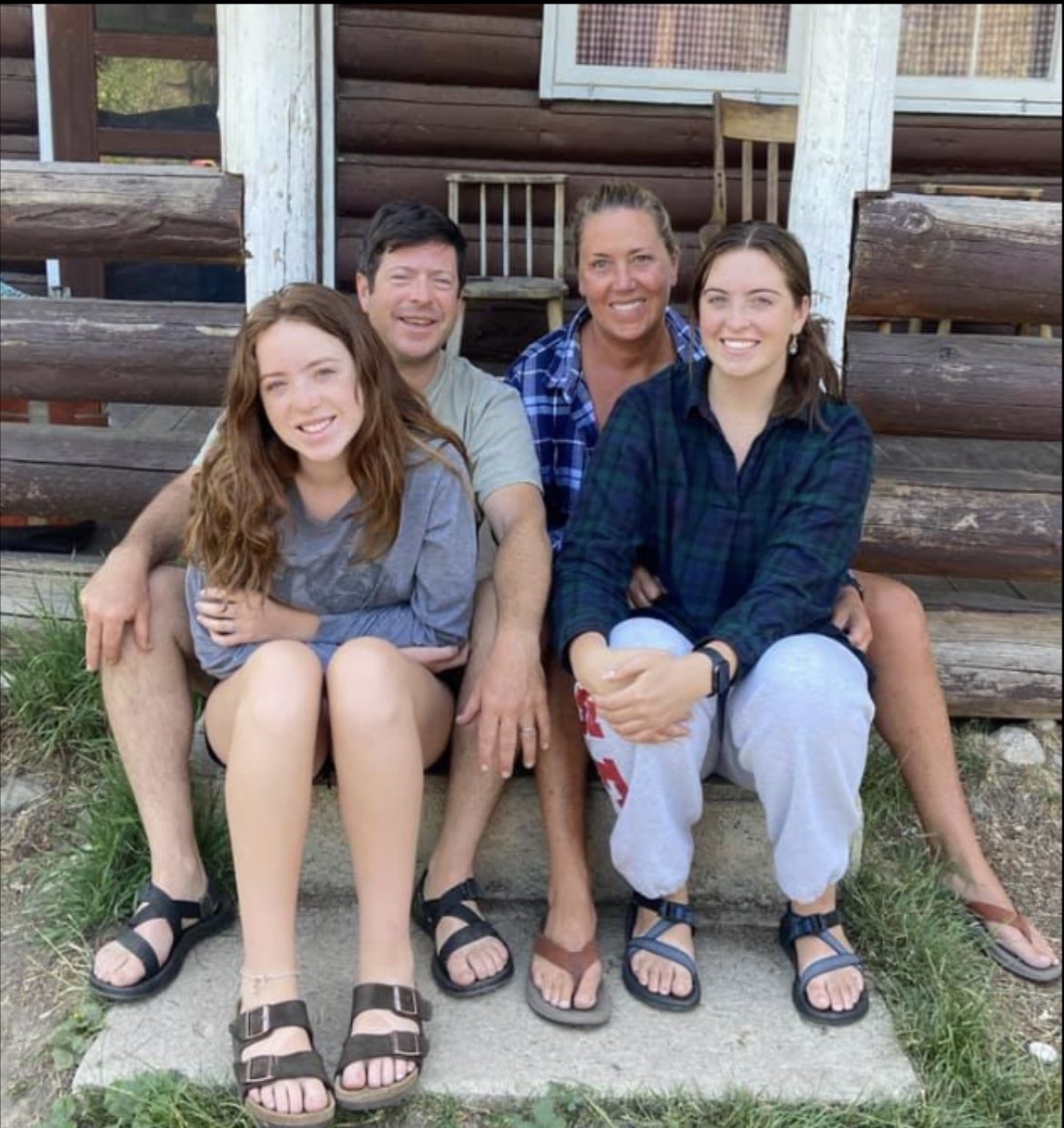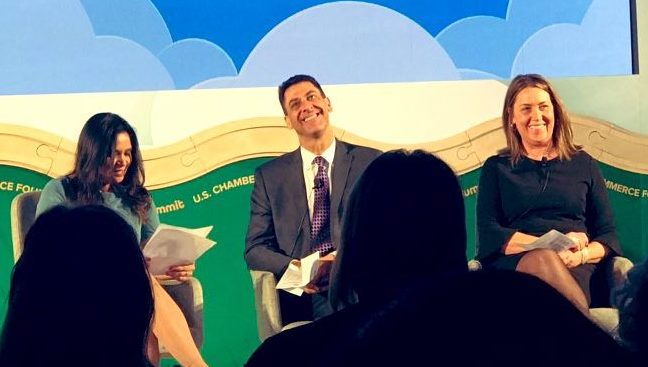Beth Oppenheimer can point without hesitation to the worst day of her career as executive director of the Idaho Association for the Education of Young Children: March 2, 2021.
“I fell to the ground, sobbing from the news,” she said.
House Republicans killed a bill to allow Oppenheimer’s nonprofit to oversee nearly $6 million in federal grants to support and expand preschool education efforts across Idaho.
She expected pushback from some lawmakers, but all-out rejection of the pre-approved funds rattled Oppenheimer, who has for years been a leading voice for state-funded pre-K despite conservative resistance.
The resistance has brought roadblocks and challenges, she acknowledged. But it’s also forced her to find alternative paths of expanding preschool across Idaho — and circumvent lawmakers in the process.
“We’re building a system,” said Oppenheimer, whose path to early learning in Idaho started in the Midwest.
Yet while her push for pre-K has gained steam in recent years, it has also sparked intense political fallout. And Oppenheimer’s education influence doesn’t end at early learning. As a Boise School District trustee, she’s found herself at the center of lingering controversy over closing and reopening schools and implementing mask mandates as the coronavirus pandemic lumbers on.
She liked education, but didn’t want to be a teacher
Oppenheimer connects her upbringing in Springfield, Ill., to a career in nonprofit leadership.
“I’ve always rooted for the underdog, and I think a lot of nonprofits do that,” she said.
But a career path didn’t emerge for years. Landing jobs as a childcare worker and assistant Head Start teacher in her hometown helped pave her way to Missoula, Mont., in the 1980s. She pursued a liberal studies degree at the University of Montana to avoid being “tied down” to a specific career.
She liked education, but didn’t want to be a teacher.

She met her husband Jonathan in Missoula. After graduating, the couple landed in Washington, D.C., where they married and had two daughters. Oppenheimer took a job with Junior Achievement USA, a global nonprofit that promotes career and life readiness for students.
Working with inner-city kindergartners deepened her interest in educationally focused nonprofits. But a job for Jonathan at the Idaho Conservation League found the couple back in the Intermountain West in 2002. They lived in Moscow for two years but settled in Boise, where Oppenheimer became associate director of Boise State University’s Student Union Building.
The position gave her oversight of a range of events and resources, from the university’s game center to its information desk. But she remembers her interactions with student employees most. To help members of her staff struggling to balance work and education, she implemented a program offering flexibility and learning resources.
Oppenheimer touted her role getting the program off the ground. Still, at the time, she yearned for a return to the nonprofit world.
She got her chance in 2010, when the Idaho Association for the Education of Young Children, an early learning advocacy group, advertised for a new director. A friend encouraged her to apply. She got the job.
An educationally focused nonprofit of her own became a reality
But there were other realities.
Under Oppenheimer’s leadership, AEYC continued its push for state-funded pre-K — an effort that has failed again and again, as Idaho remains one of only four states that doesn’t fund preschool. Pre-K is popular with Idaho’s education and business leaders — and a vast majority of Idahoans, according to a 2018 poll commissioned by AEYC. But political leaders have resisted funding even optional pre-K.
Frustrated with continued lack of state funding, Oppenheimer and her organization began taking a different approach in 2019.

“We flipped it on its head,” she said.
Rather than relying on the Legislature for top-down pre-K funding, AEYC targeted resources and support in communities across the state.
The grass-roots emphasis gained traction. Two years in, 15 communities, from Pocatello to Coeur d’Alene, are participating in AEYC’s “early learning collaborative,” which entices school districts, local organizations, business leaders, childcare providers, community leaders and stakeholders to create and deliver school readiness programs.
It’s not state-funded pre-K, Oppenheimer acknowledges, but it’s a start.
The state’s rejection of $6 million in federal funds
By January, community collaboratives and $6 million in annual federal pre-K funds earmarked for Idaho signaled a possible shift, however slow, in the pre-K landscape.
With Gov. Brad Little’s blessing, AEYC secured the money on Idaho’s behalf, and the organization’s growing batch of collaboratives had planned on the grant to develop and grow their programs. The influx of funds would also allow Idaho to take an inventory for the first time of what was already available in terms of early learning — something state superintendent Sherri Ybarra called a “step in the right direction.”
But concerns over social justice indoctrination, fueled by the Idaho Freedom Foundation, had taken hold in Idaho — and in the Statehouse. On March 2, conservative Republicans attacked AEYC’s partnership with its national affiliate, the National Association for the Education of Young Children. Some lawmakers suggested the national organization would use books and curriculum to indoctrinate children with a social justice agenda. Others said the grant was all about local control.
Following a lengthy and heated morning floor debate, the House voted 36-34 against the bill allowing the funds to flow to Idaho.
The fallout was swift. Within hours, Oppenheimer blasted lawmakers for “making false statements” about curriculum and accountability. The AEYC doesn’t provide early education curriculum and submits detailed project budgets to the federal government, which are audited and posted on the group’s website, Oppenheimer told EdNews hours after the vote.
Complaints from parents in American Falls, one of AEYC’s early learning collaboratives, prompted one lawmaker to suggest that he would have voted in favor of the federal funds if he could do it over again.
“The money was already there,” American Falls Superintendent Randy Jensen told EdNews in March.
Debates over indoctrination went on to stall state funding for K-12 and higher education last session — and spark the creation of Lt. Gov. Janice McGeachin’s education task force, which most recently turned its attention to purported indoctrination issues in the state’s colleges and universities.
Still, Oppenheimer, who recently lamented the rejection of the three-year grant, dismissed issues that jeopardized the money as “lies and misinformation.”
‘We’re not finished’
Narratives that derailed the federal funds are still a source of regret for Oppenheimer. But they illustrate a lesson she’s learned over the years: It’s not often the truth that shapes policy, but perceptions of the truth. She sees it in the Legislature’s early education debate, and as a Boise school trustee.

The Oppenheimers, from left: Annabelle, Jonathan, Beth and Maddie.
On Aug. 3, Oppenheimer joined her fellow board members in reinstating the district’s controversial mask mandate, ahead of the upcoming school year and amid a renewed surge of coronavirus cases.
For Oppenheimer, reinstating the mandates was a tough call, but it was the right thing to do.
Some patrons couldn’t disagree more. The decision drew sharp criticism from some audience members, who hurled catcalls of “sheep” and “cowards” at Oppenheimer and fellow trustees. Critics crammed a board meeting in early August to protest the mandate again, even though masks weren’t on the agenda.
Widespread perceptions of what’s best for kids have made decisions tougher during the pandemic — and turned education itself into a political wedge issue, Oppenheimer said. “It’s not like I’m running Planned Parenthood here.”
Yet the divisions pervading education have also made smaller breakthroughs more meaningful for Oppenheimer, who says it’s “no secret” she’s a Democrat. When discussing highlights of her career, she pointed to her partnership with Idaho Association of Commerce and Industry President Alex LaBeau to help advance early learning in communities across Idaho.
“Some folks are often surprised at how he and I have come together around childcare and early learning,” said Oppenheimer.
Oppenheimer’s long-running push for improved childcare and pre-K resonated with LaBeau, a Republican who sees connections between early learning issues and efforts to sustain and improve Idaho’s workforce.
“She’s sometimes pasted as a lefty liberal,” LaBeau told EdNews. “That kind of stuff makes me laugh, but it’s a sign of the times. Really, she’s one of those people that if you want to solve a problem in the area of childcare, go talk to her.”
Others connect Oppenheimer’s influence to her passion for education.
“I’ve seen her get frustrated at times with both the grant process and the Legislature,” said former Boise School District Superintendent Don Coberly. “But she’s open-minded and has listened to a lot of different ideas during the pandemic to bring a voice of reason to the board.”
Despite setbacks, Oppenheimer said her passion keeps her going.
“We’re not finished,” she said of AEYC’s efforts to secure state funding for pre-K.

